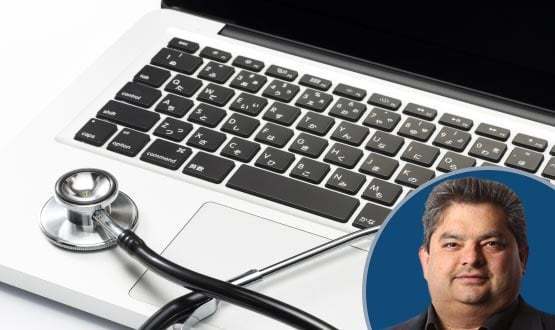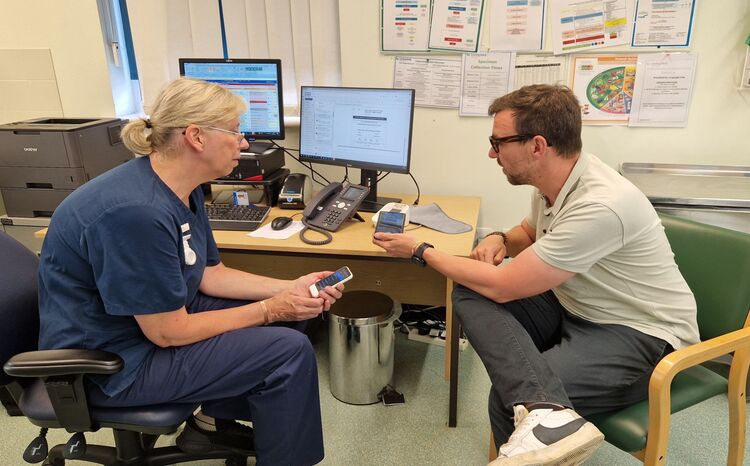Another view: of the power of GP federations
- 27 December 2018

In his last column of 2018, our GP columnist looks back at what his GP federation has achieved throughout the year. This ranges from GP practices joining together to spend money on a dedicated IT support to peer to peer referrals.
A lot of my time helping lead our current GP federation of 29 practices is spent thinking about what projects could we could run that would benefit from working at scale. Locally none of the practices want to form one big super practice.
A couple have merged where it has suited their personal circumstances, some are working in localities, but most are running independently. Our local GP federation has therefore concentrated on delivering services which all its member practices can benefit from, but which don’t threaten their independence, but which only work at scale to demonstrate the value of the federation. A lot of these are IT as you can afford to hire people or buy in services that a single practice would struggle to justify.
We have setup a GDPR service for our practices. We have a trained IG lead who supports them, acts as their DPO and advises them. We have joined with other federations to create this service and it’s at a trivial cost to practices where doing it themselves would cost a fortune.
We hired in a programmer and built our member surgeries a cheap as chips, but cheerful and informative website. It has syndicated content on it that is put on it by the GP federation comms manager. This saves the practice managers work, is cheaper than anything on the market and gives a form of corporate identity. Each website is personalised to the practice, it’s not one site, but follows a similar look and feel and layout. Another GP federation is joining us on the platform but with a slightly different look and feel and our comms manager is supporting them.
Extra pair of IT hands
Some of our practices joined together and spend a pot of money on an IT support person. This isn’t to replace the CSU helpdesk but to do all the things it doesn’t and arguably should!
The practices worked out their staff were losing hours a week in chasing problems and in inefficient processes. Training days from big companies cost a fortune and it’s always difficult to cram everything into one day, so we took on a couple of ex-trainers. They are familiar with EMIS, Docman and other software we use for example, they are demoing the excellent and free AccuRx to practices as they visit them.
They are fixing issues, giving 1-1 and group training, looking at systems and processes and trying to get the most out of the IT in a way that the CSU locally has never done. It’s amazing how little training some of our staff have had on the software they use every day. They are available to help newly taken on receptionists and also experienced partners who want complicated protocols and templates creating. We hope to carry on funding them long term.
Working at scale
Early on we decided to move onto a common digital dictation platform and worked with Lexacom using their cloud software. Now all the surgeries that wanted to, are on it and it has numerous benefits. It’s much easier to support and train one system, and much easier for locums and others working in the area as they have only one system to learn and it has added features such as built in metrics to allow performance reporting, outsourcing of typing at instant notice to reduce the need for temp staff in cases of illness and holiday and speech recognition for those that want to try it… I have a love hate relationship with it.
Because it’s in the cloud, it in theory also allows us to move the typing around. Our original aim was to have a typing pool centrally that works on behalf of all practices and we may get there though the outsourcing might be the solution. Now we have some practices in the same building sharing a secretary, some secretaries who are part time in one surgery doing the typing of another’s. It’s very flexible and I think more people should know about it as it is a great example of working at scale.
So is our ECG project. We decided early on that harmonising care was key to the health system trusting general practice. We met with Technomed and decided to do a project with their ECG cloud platform.
All the participating practices have one of their ECG machines and upload the ECG to their cloud where it is reported to a common standard by a technician and a legible report is sent back to the requester via Docman and saved in the notes. There is the ability to speak to the technician and they audit their work to high standards. Now in itself this is nothing special, but we are now exploring their total solution. They have an ordering app which runs on any clinician’s desktop, this generates an ECG request. The patient can turn up to any site offering the ECG service and we have multiple practices opening in extended hours and hubs seeing patients from any local practice where they will be able to do this. The ECG is done at the site and the report sent back to the originating practice. This allows practices that don’t want to do ECGs to take part. It also allows patients convenience of time/location.
Even better we are now looking at adding in local clinical advice. We have big issues locally with cardiology waiting times. A lot of referrals are about ECGs and the Technomed app allows you to send the ECG to an expert with a history for advice. This could be a local consultant or a remote company, Technomed can provide consultants but locally we are looking at using local GPSIs to help. This should reduce referrals and reduce waiting times.
Peer referrals
With regard to referrals locally, our CCG has been very innovative and allowed us to run a peer2peer referrals scheme. We have setup a website and 1 in 4 referrals at random are uploaded to the website. A panel of 10 local GPs acting as peers reviews each referral and score it and give feedback to the referrer as well as collating feedback to the commissioners.
This was setup instead of hiring in a company to vet referrals. Experience from neighbouring CCGs has been that those systems just generate conflict and complaints and alienate the GPs from the CCG. We’ve only been running 3 months but there is early evidence of an improvement in the quality of referrals, a levelling off of the number, and it has generated a load of data on impropriate pathways.
None of these schemes and more that I haven’t described would be possible without practices agreeing to work together. What we have learnt and perhaps my next column will be about is some of the limitations of current software in dealing with what I might call enterprise working.




